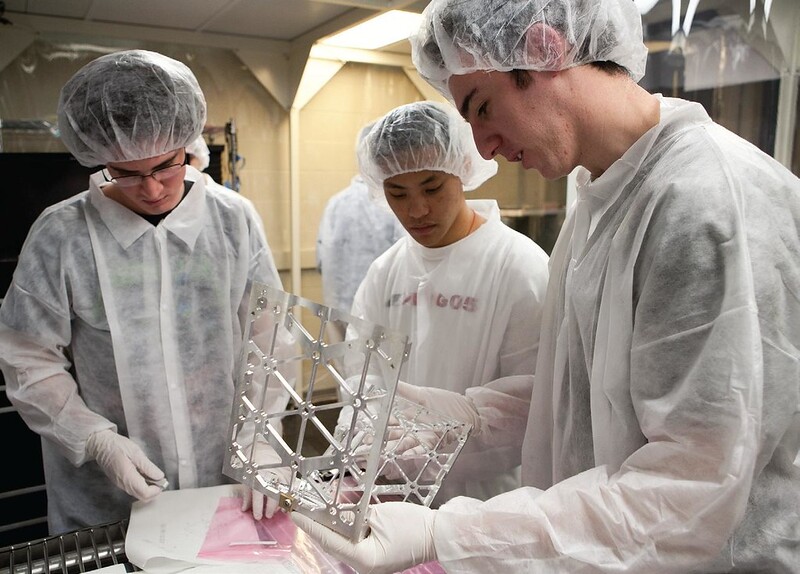
The Cornell University Satellite, a nanosatellite designed and built by students, is launched into space. The Cornell University Satellite (CUSat) is a nanosatellite developed by Cornell University that launched on 29 September 2013. It used a new algorithm called Carrier-phase Differential GPS (CDGPS) to calibrate global positioning systems to an accuracy of 3 millimeters. This technology can allow multiple spacecraft to travel in close proximity.[1]The CUSat project began in 2005 and was the winner of the University Nanosat-4 Program which aims to educate the future aerospace workforce and develop new space technologies.The satellite uses a new algorithm called Carrier-phase Differential GPS to calibrate global positioning systems to an accuracy of 3 millimeters. This technology can allow multiple spacecraft to travel in close proximity